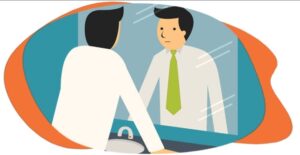MAN, KNOW THYSELF 2

“If you know the enemy and know yourself, you need not fear the result of a hundred battles. If you know yourself but not the enemy, for every victory gained you will also suffer a defeat. If you know neither the enemy nor yourself, you will succumb in every battle.”
– Sun Tzu
The quest for increased knowledge of the self as a weapon and defense against the sure tragedies of life and the sometimes fragmented nature of existence has been a point of agreement among philosophers throughout history. If several acclaimed sages over the years have reached this conclusion, then is it not logical and wise to investigate this philosophy if one is on a sacred quest to better their life? In this article, we will be examining the steps involved in knowing the self.
According to Socrates, the only wisdom is in knowing that you don’t know anything. How could you? Whatever it is that you think you do know is surely negligible compared to the vast amount of knowledge that could be known. This is the first and perhaps the most important step. You cannot learn and “fill your cup” if you believe it to be full. This step requires a lot of humility because it is an admittance of your inadequacy. Only after admitting to yourself that you know nothing, and only then, can you be receptive to knowledge and the pursuit thereof.
The next step on the journey of self-discovery is self-awareness. The dictionary defines the word “aware” as vigilant, conscious, and having the knowledge of something. Marcus Aurelius, the father of stoicism, said, “These are the characteristics of the rational soul: self-awareness, self-examination, and self-determination.” He goes on to say, “It reaps its own harvest… It succeeds in its own purpose…” The aim is to watch yourself like a hawk or a snake watches its prey with a fixed gaze and focused attention, critically examining its movements.
The final towards knowing the self is to question what you do see. According to Socrates, the only way to know something is to understand it, and the only way to understand it is to question it. This is what retired Navy Seal, David Goggins calls a live autopsy. If you do not know where to start, this MBTI personality test is a good place to begin. It poses multiple questions that are geared at classifying you into one of the sixteen MBTI personality types. What are your core values? What are your strengths and weaknesses? What motivates you on an intrinsic level? How do you handle fear and failure? These are other questions you might want to ponder. Remember, you want to meditate on these questions and derive honest answers from yourself. As you answer these questions, more pertinent questions will reveal themselves. You should learn to subject your thoughts, proclivities, and actions to a multiplicity of analyses.
One habit that will be critical and useful to develop is journaling. There is an old Chinese proverb that says the faintest ink is more powerful than the strongest memory. Journaling your day-to-day observations of your self and any answer(s) to questions you have posed to yourself is a sure way of keeping track of your progress. It also helps to separate the wheat from the chaff and articulately clarify your thoughts. Writing down any highlights of your day for five minutes at the end of the day is a good place to start.
While it will be virtually impossible to condense all there is to say about knowing the self into one article, I do hope that I have passed across enough information to set you on a continuous path of self-discovery. We have discussed the general concept of knowing the self and examined the steps involved, in the next article, we will be discussing what hopes the application of this knowledge holds for the future.
